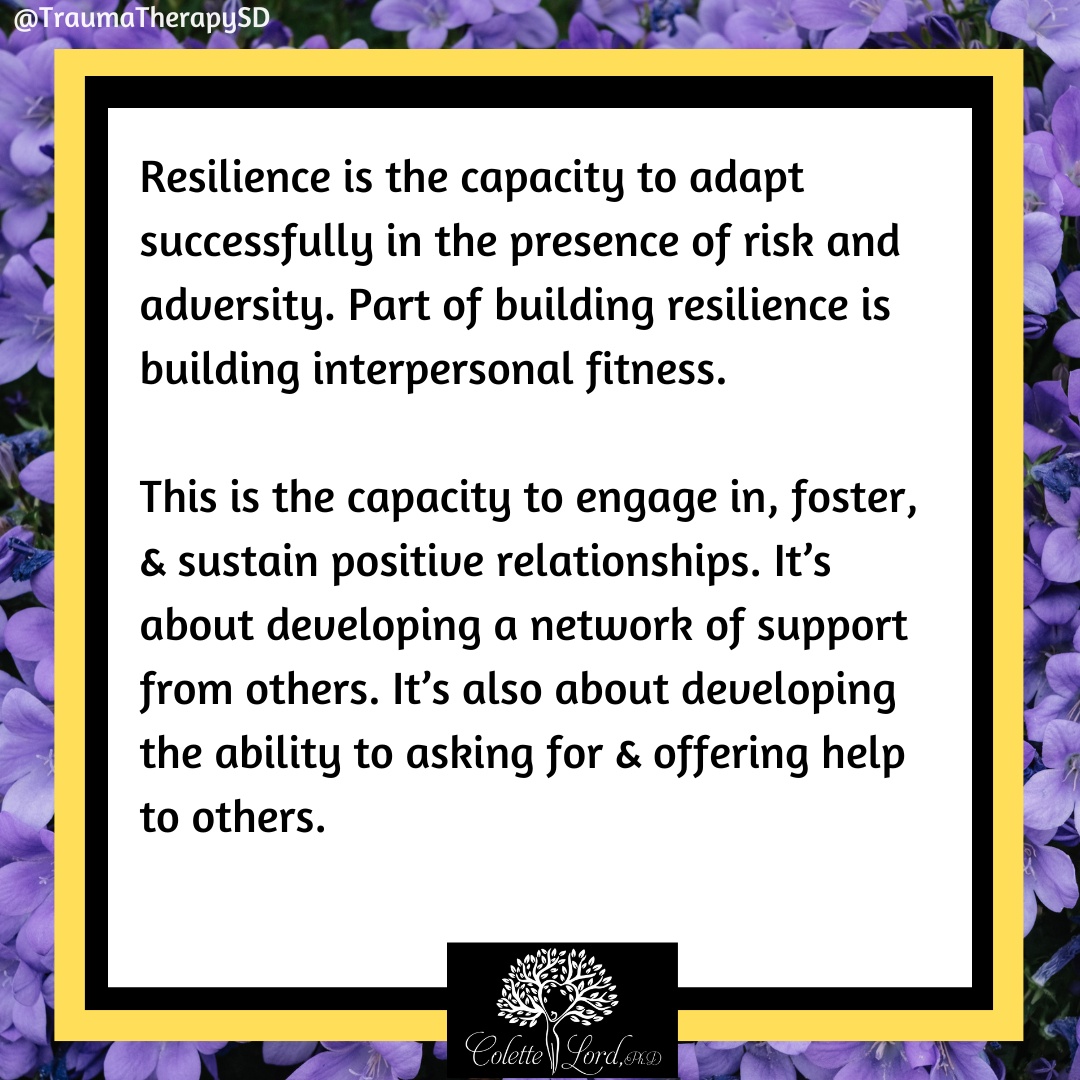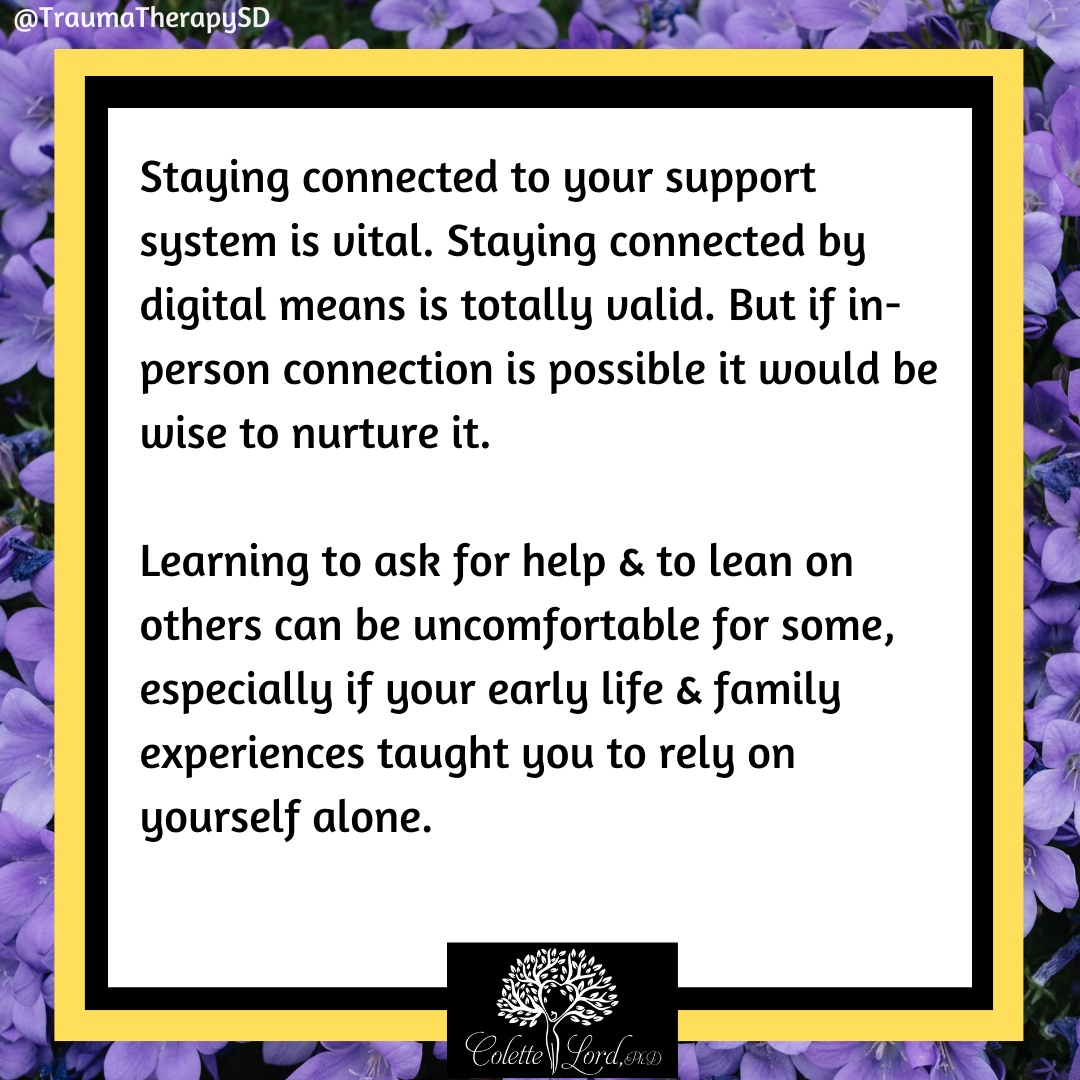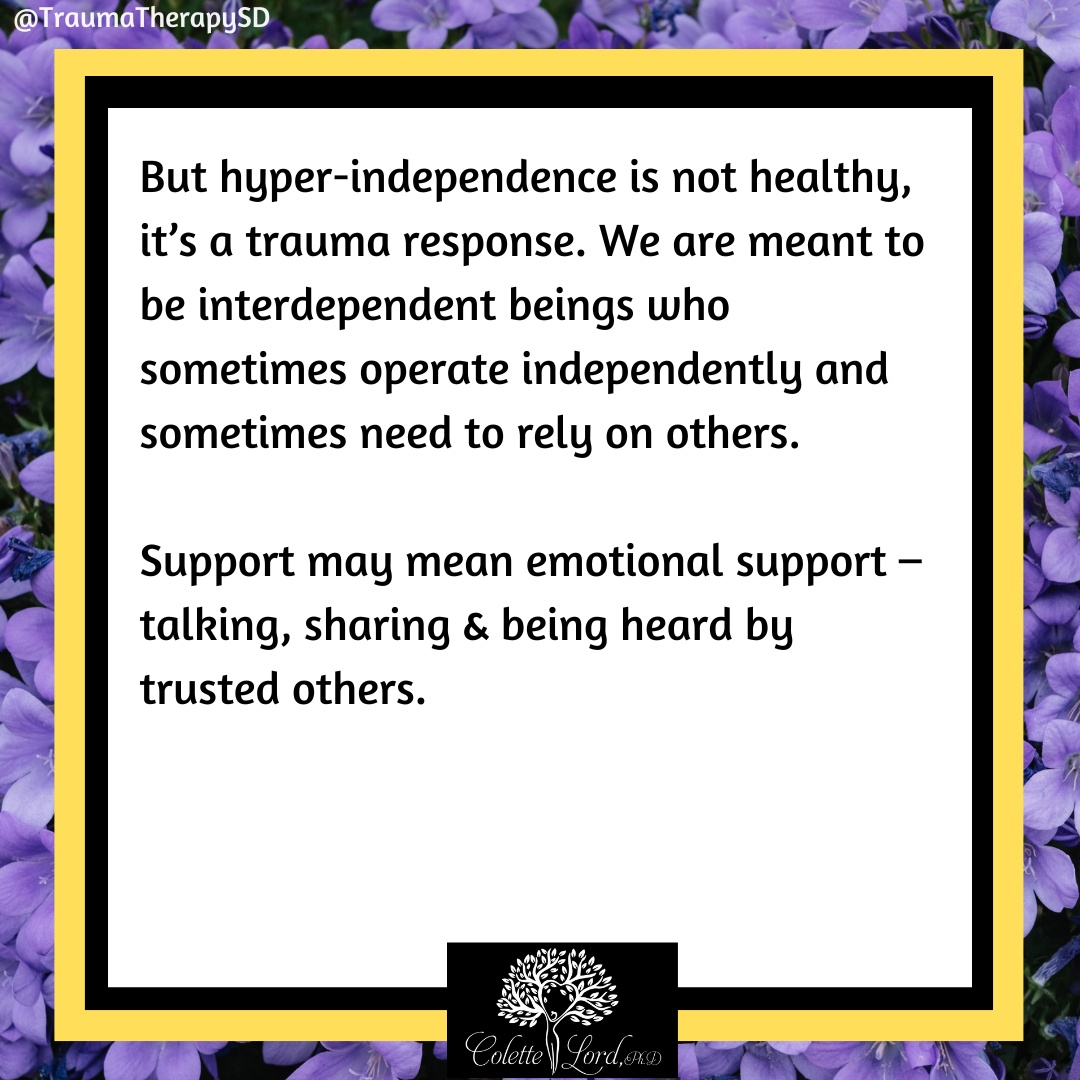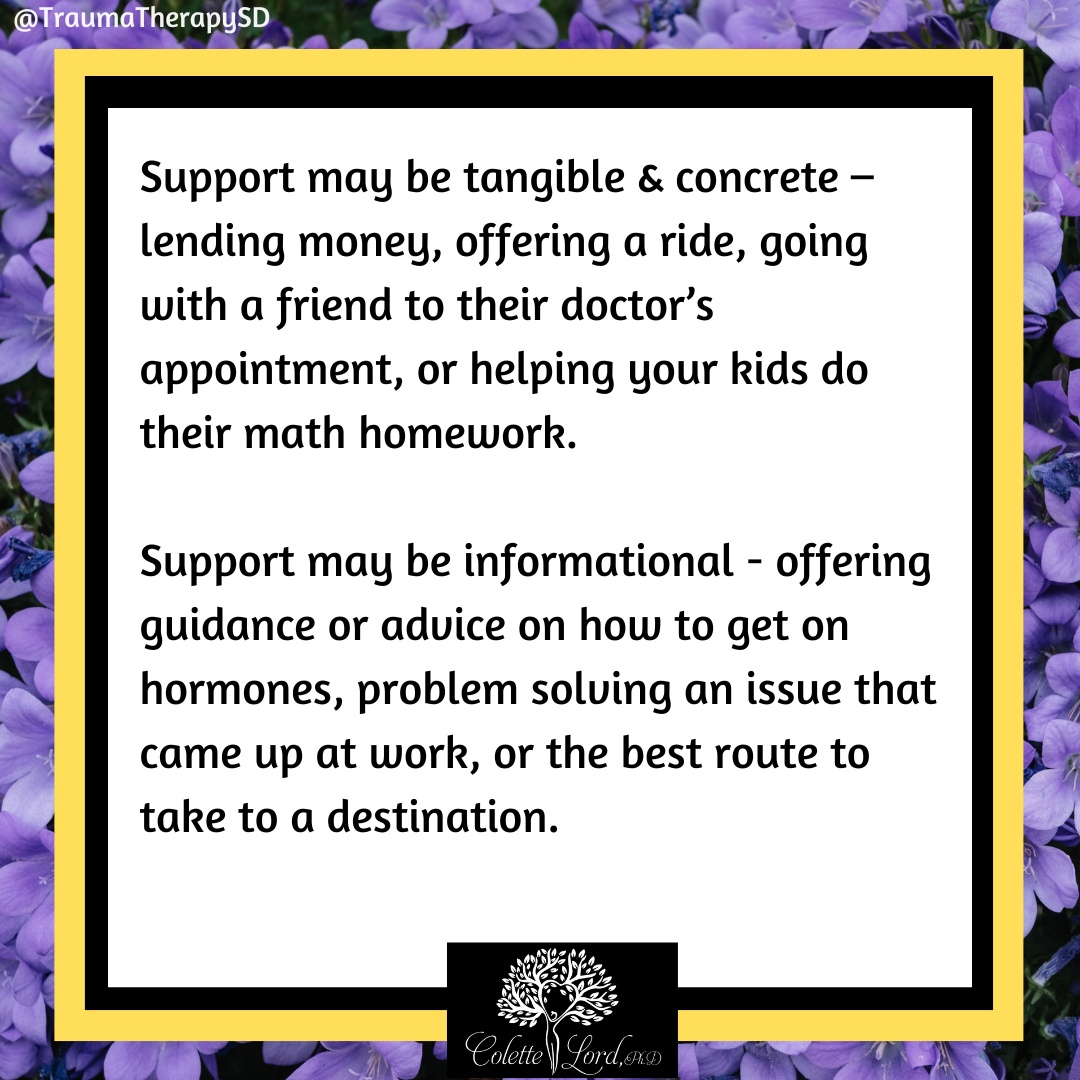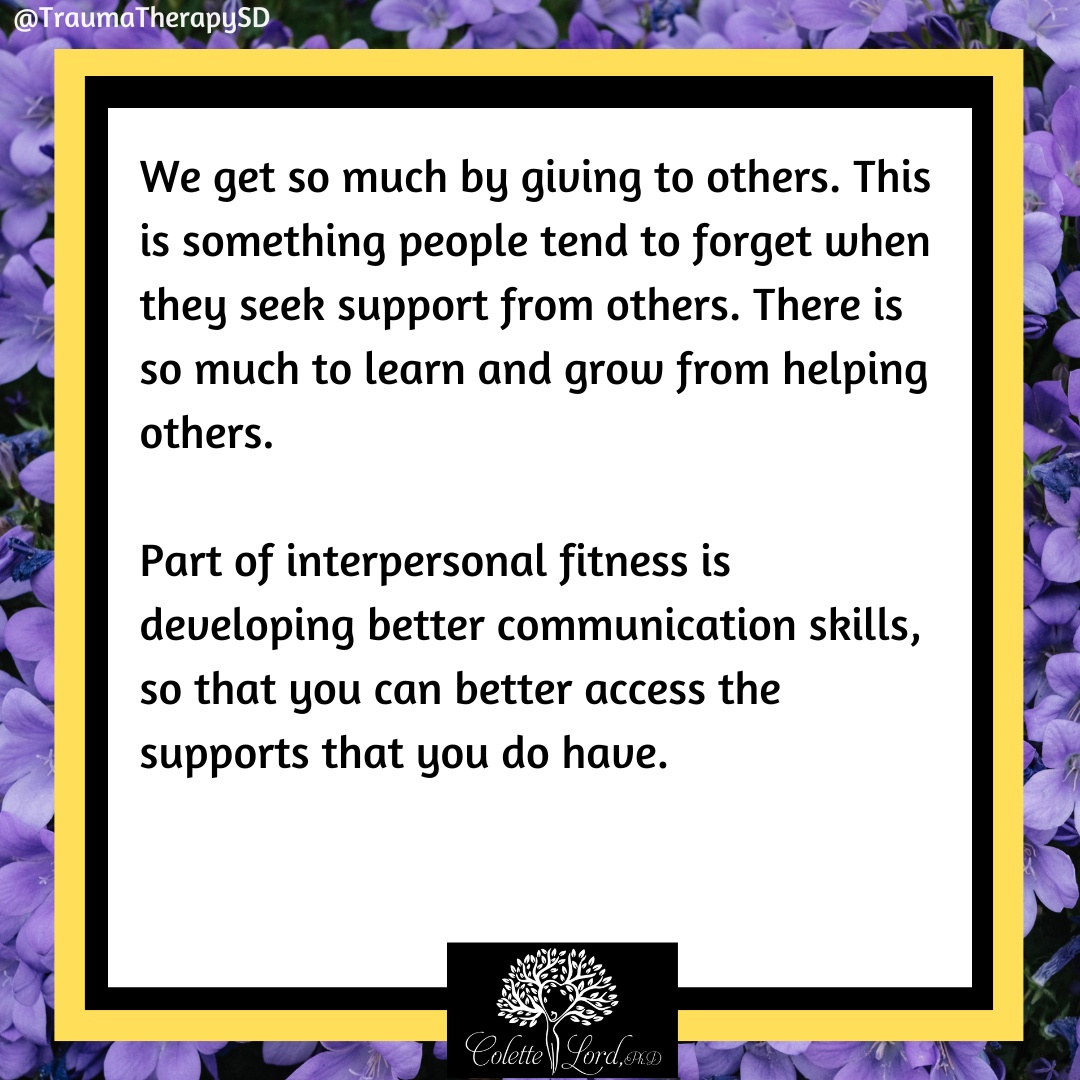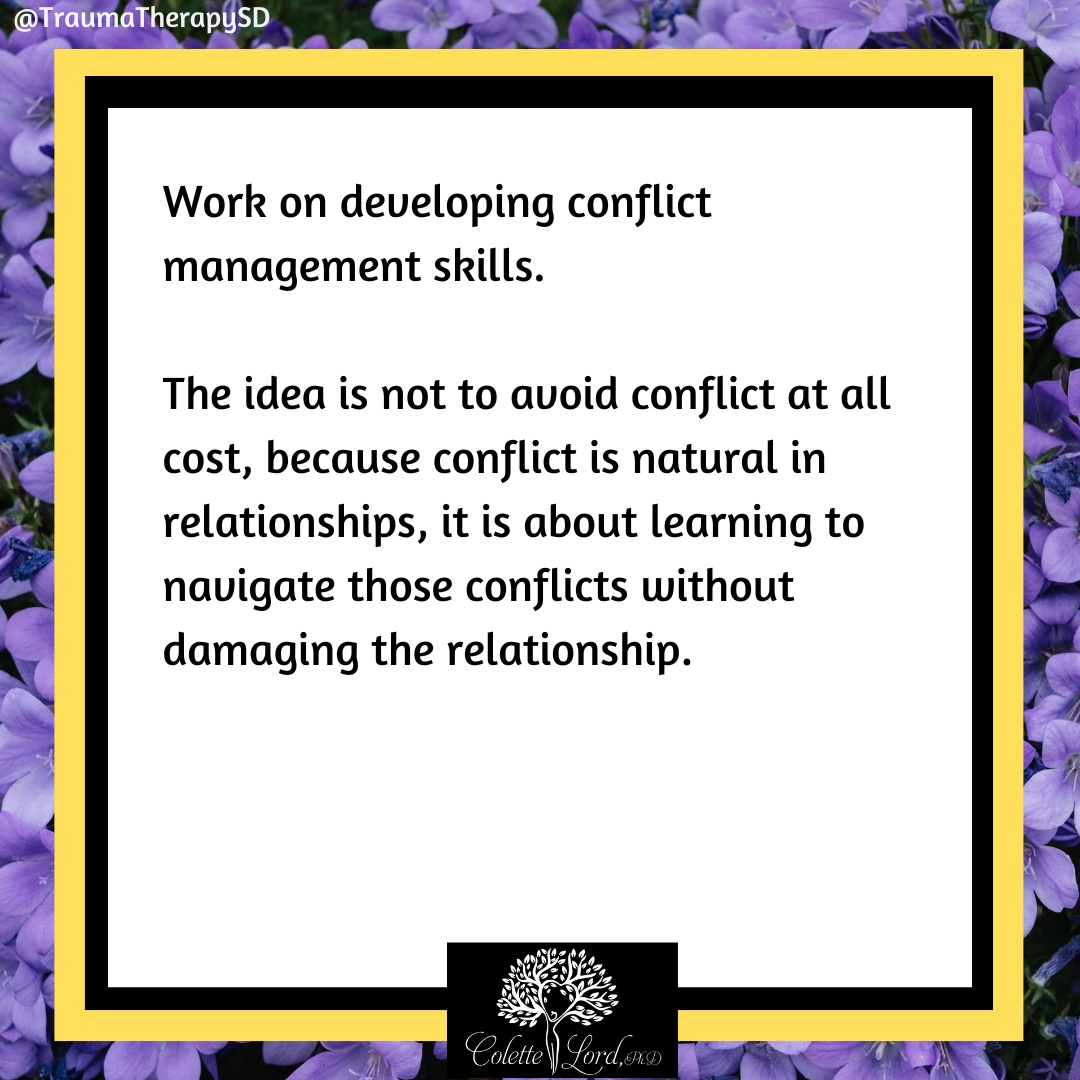Interpersonal Resilience
Resilience is the capacity to adapt successfully in the presence of risk and adversity. Part of building resilience is building interpersonal fitness. This is the capacity to engage in, foster, & sustain positive relationships. It’s about developing a network of support from others. It’s also about developing the ability to asking for & offering help to others. Staying connected to your support system is vital. Staying connected by digital means is totally valid. But if in-person connection is possible it would be wise to nurture it. Learning to ask for help & to lean on others can be uncomfortable for some, especially if your early life & family experiences taught you to rely on yourself alone.
But hyper-independence is not healthy, it’s a trauma response. We are meant to be interdependent beings who sometimes operate independently and sometimes need to rely on others.
Support may mean emotional support – talking, sharing & being heard by trusted others.
Support may be tangible & concrete – lending money, offering a ride, going with a friend to their doctor’s appointment, or helping your kids do their math homework.
Support may be informational – offering guidance or advice on how to get on hormones, problem solving an issue that came up at work, or the best route to take to a destination. We get so much by giving to others. This is something people tend to forget when they seek support from others. There is so much to learn and grow from helping others. Part of interpersonal fitness is developing better communication skills, so that you can better access the supports that you do have.
Work on developing conflict management skills. The idea is not to avoid conflict at all cost, because conflict is natural in relationships, it is about learning to navigate those conflicts without damaging the relationship.

